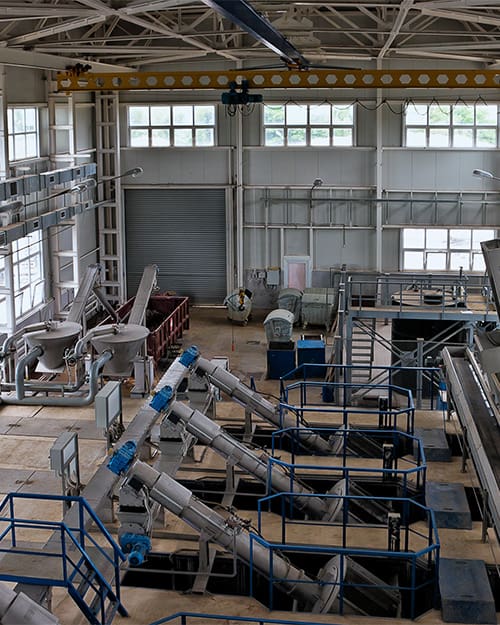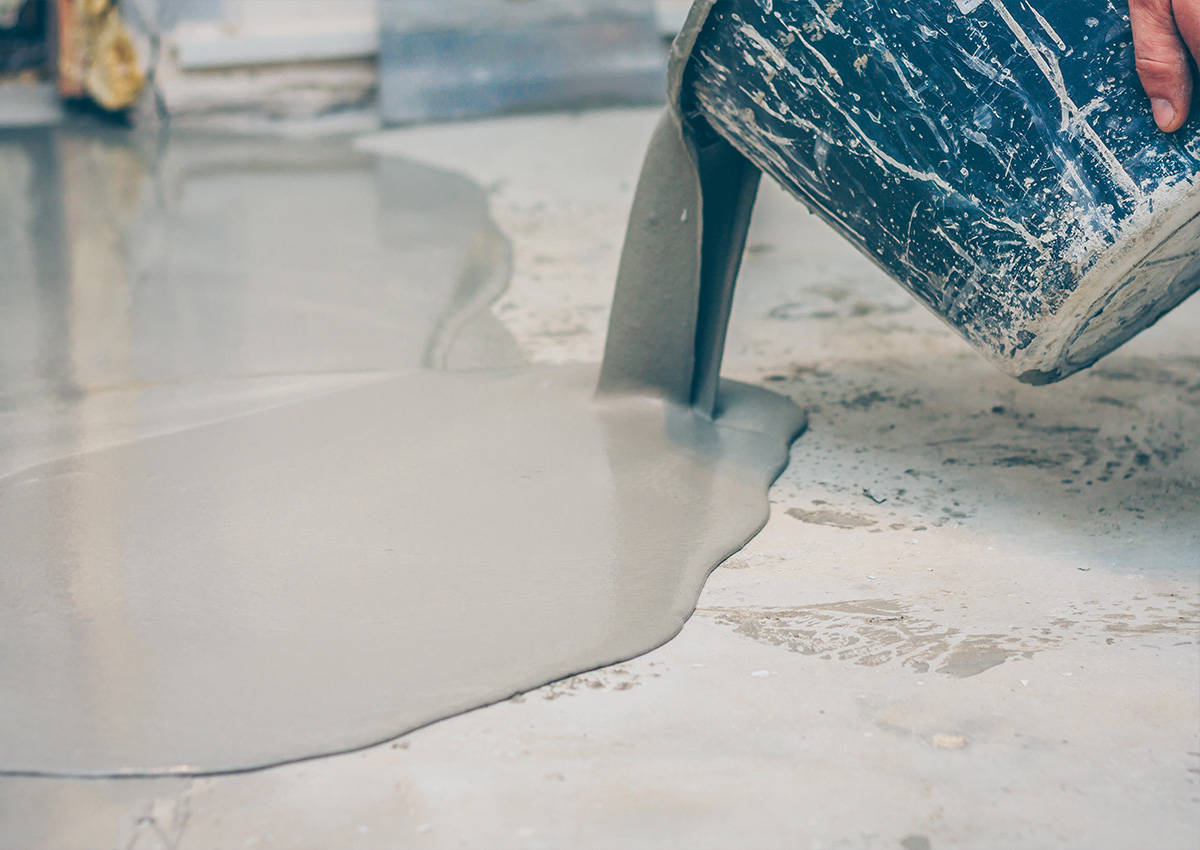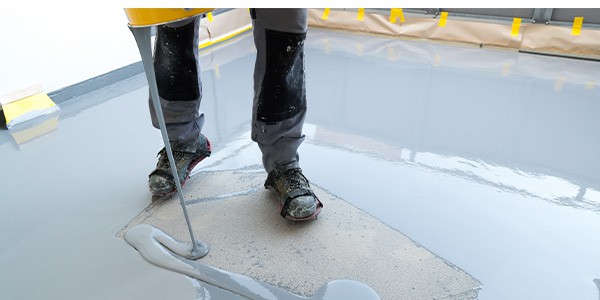Durable Flooring for Wastewater Treatment Facilities
Protect workers and prevent flooring damage with a durable floor coating at your water treatment facility.

Are you the facilities manager for a wastewater treatment plant? Doubtless you’ve experienced the unique challenges that your industry poses for your structures—particularly for your flooring.
Concrete offers a durable and cost-effective flooring option, which is a popular choice. It's one we often recommend, in fact. But wastewater treatment plants can create particularly harsh and corrosive environments for concrete.
As a manager, you are probably always trying to prevent structural deterioration or repair concrete that's been damaged. Let's look at what could be destroying your concrete floor and ways to prevent or solve flooring problems in your facility.
Let's solve your flooring problems together.
What affects flooring durability in a wastewater treatment plant?

Chemicals
Manufactured acids discharged into sewage a treatment facility lower the pH of the water, turning it into an acidic substance. The sludge that sewage leaves behind nourishes sulfate-reducing bacteria that react with oxygen, thus creating sulfide ions. In turn, these ions merge with hydrogen, forming hydrogen sulfide. This substance eventually becomes hydrogen sulfide gas, which lowers the pH of any concrete it comes in contact with.
Over time, the concrete's pH can drop from a 12 to a 9.5, a substance 1,000 times less alkaline than it was. At this point, sulfuric acid forms. Now, the concrete is surrounded by moisture, low pH, oxygen, and sulfur oxidizing bacteria, which is appropriately named SOB. Together, these factors attack the concrete and cause it to expand. Simultaneously, carbonization, which naturally occurs when concrete gets exposed to the atmosphere, makes concrete contract. This expansion-contraction cycle eventually weakens and then destroys the structure.
Abrasion
Solid material floats around in your wastewater. Ice, salt, rocks, sand, and silt in the water make tiny insults against concrete that over time create a completely smooth surface due to abrasion.

Chloride ion induced corrosion
When concrete first gets poured around steel, the steel experiences some corrosion. However, around the surface, an oxide film forms, which provides a protective layer against further corrosion. Damage to that film can mean injury to the steel structures within the concrete.
The film gets damaged when moisture, chloride ions, and oxygen make their way through cracks in the concrete. Rust then forms on the steel. That rust creates tensile stresses from inside the concrete, and concrete cracks to relieve tensile stress.
Freeze-thaw conditions
Concrete gets cold and then hot, wet and then dry. These environmental conditions inevitably create tension on the concrete. Due to its purpose, a wastewater treatment facility naturally experiences these conditions, creating cracks in concrete and other flooring substances over time.
Why do wastewater treatment facilities need durable flooring?
Whether your plant deals with industrial wastewater or municipal water treatment, laying and maintaining the right kind of flooring is vital for good work, employee safety, structural longevity, and regulatory compliance.
A wastewater treatment facility can choose from several flooring types. Concrete, for example, is one of the strongest and most durable flooring options available. Builders have relied on it for centuries, and after the invention of steel-reinforced concrete in the mid-1800s, it became the go-to building material for wastewater treatment plants.
Unfortunately, the introduction of steel brought new problems along with great strength. For one thing, steel corrodes. When that happens to a steel bar embedded in a concrete wall, the concrete starts to crack. Then, abrasive chemicals can flow into those cracks, deepening and widening them through abrasion and freeze-thaw sequences.
Simply put, chemicals used to treat wastewater will destroy concrete over time, eating through normal floor coatings that aren’t designed to withstand the constant abuse a wastewater treatment facility's floor will experience.
Besides corrosion, you also have to be careful about contamination and keeping your facility sanitary. It's all part of staying cGMP compliant as is workplace security. And when it comes to worker safety, you should know that the constant exposure to moisture can also create slipping hazards for your employees. The last thing you want to deal with are injured employees, not to mention expensive workers’ compensation claims.

What flooring options are there for wastewater treatment facilities?

Facilities managers at wastewater treatment plants typically choose flooring solutions constructed of materials durable enough to withstand the challenges of chemical and environmental exposure.
Various chemistries and formations can create pH and acid-resistant coatings suitable for a wastewater facility. These coatings contain antimicrobial properties, and many provide a way to shed the moisture that accumulates on them. At CPC Floor Coatings, all our floors can withstand heavy shock and thermal impacts. Ask about which of our coatings provide more chemical and abrasion resistance than others. We can help.
Beside being effective and durable, our floor coatings are also environmentally friendly. To go green, we can use soy-based resin, recycled content, and reduced and recyclable packaging. We also provide LEED point contributing floor systems and zero or ultra-low VOC coatings.
How can CPC Floor Coatings help?

Let us help you find the right flooring solution.
CPC Floor Coatings can recommend and install flooring that will resist chemical corrosion and reduce the risk of slip-and-fall accidents. We install both weatherproof coatings for exterior surfaces as well as chemical-resistant floor coatings for interiors.
If you’re in the Southeastern US, our flooring experts would be happy to give you a free consultation for your facility. We can come out to your facility and give you an accurate time- and cost-estimate.
Call CPC Floor Coatings (864) 855-0600 or contact us using the form at the top of this page.
